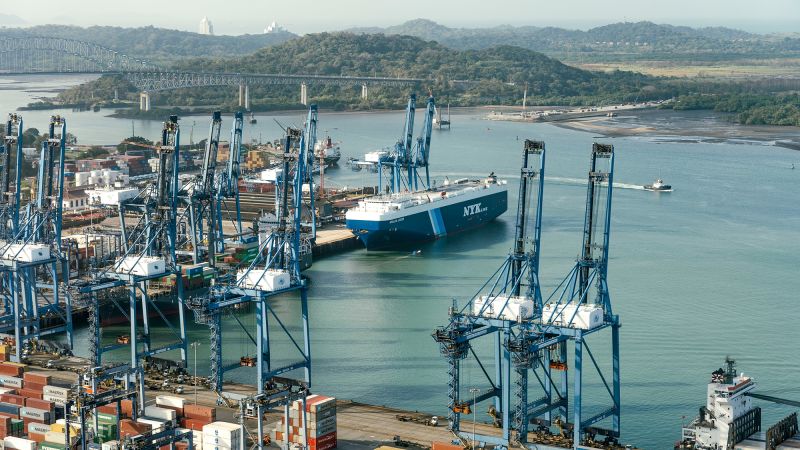
The Panama Canal: A Geopolitical Tightrope Walk
The Panama Canal, a vital artery of global trade, is once again at the center of a geopolitical tug-of-war. A recent proposal to transfer ownership of key port facilities within the Canal’s operational sphere has ignited a firestorm of controversy, highlighting the complex interplay of finance, national security, and international relations.
At the heart of the matter is a proposed sale to a consortium spearheaded by BlackRock, the world’s largest asset manager. While the details of the proposal remain somewhat opaque, the potential transfer of control to a private entity, particularly one of such significant scale and influence as BlackRock, has raised serious concerns among various stakeholders, most notably the Chinese government.
Beijing’s vocal opposition to the deal isn’t surprising. China’s economic interests are deeply intertwined with the smooth functioning of the Panama Canal. A massive amount of Chinese goods transit the waterway annually, making its stable and predictable operation crucial to their global trade ambitions. Any perceived shift in control towards a Western-aligned entity like BlackRock, therefore, presents a significant strategic risk. The concern is not simply about economic disruption but also about potential geopolitical implications, with fears of potential limitations on Chinese access or influence. This anxiety is likely amplified by existing geopolitical tensions between the United States and China.
The reaction from Hong Kong, a Special Administrative Region of China, further underscores the gravity of the situation. The sharp decline in share prices of the Hong Kong-based conglomerate that currently owns the ports in question is a direct reflection of investor nervousness. This market response clearly indicates a lack of confidence in the long-term stability and profitability of these assets under new ownership, potentially foreshadowing wider economic consequences.
Beyond China’s direct concerns, the proposed sale raises broader questions about the delicate balance between privatization and national interests. The Panama Canal, while operating under Panamanian sovereignty, holds immense strategic importance for the global community. Any privatization scheme must carefully consider the potential for undue influence from the acquiring entity, especially one with the financial might and global reach of BlackRock. Transparency and accountability are paramount in such a significant transaction to prevent the Canal from becoming a pawn in larger geopolitical games.
The situation also underscores the escalating tensions in the global financial landscape. The involvement of BlackRock, a behemoth in the financial world, inextricably links the seemingly mundane matter of port ownership to the broader dynamics of global power and capital. This underscores the growing influence of private financial actors in shaping international affairs, a trend that often transcends national borders and traditional geopolitical alignments.
The fallout from this proposal will likely reverberate far beyond the Panama Canal itself. The ensuing debate forces a crucial conversation about the proper balance between private enterprise, national sovereignty, and the broader global economic order. The ultimate outcome of this power struggle will undoubtedly have significant and lasting repercussions for international trade, geopolitical stability, and the future of global investment strategies. The world will be watching closely as this complex situation unfolds.



Leave a Reply